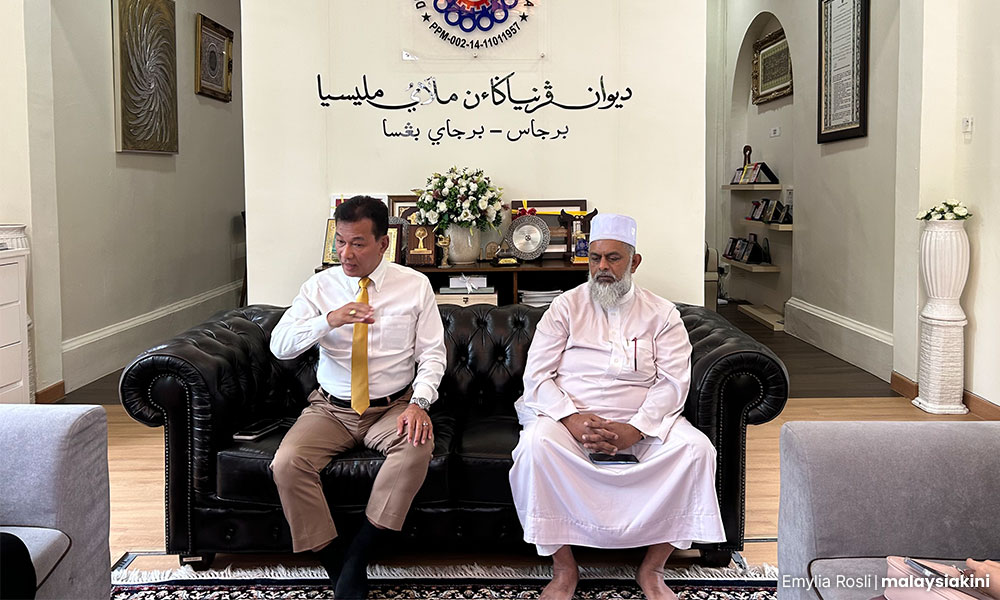The Malay Printers Association has urged the Health Ministry to tighten its tender application requirements for pharmaceutical suppliers in the country.
The association specifically requested that the ministry must make it compulsory, within the tender, for printing companies to obtain approval from the Home Ministry to print holographic safety labels.
The group’s president Badruddin Abu Bakar said that the lack of specifications allows companies to simply print the labels and place them onto products without any approvals or licences.
“Printing and security companies which already have licences from the Home Ministry are affected because anyone can just come in and print the label.
“This is also dangerous for the consumers because they would not know any better,” Badruddin (above, left) said.
Holographic labels are often used as anti-counterfeiting measures to protect products, documents, or identification cards from being replicated or forged.
Consumers are also able to scan the QR (Quick Response) code provided on the label with their mobile phones to find more information about the product or the brand.
On the other hand, the holographic safety label is an initiative by the Health Ministry for consumers and pharmaceutical enforcement officers to determine the authenticity of the products.
“The customers can just go to their regular pharmacy and pick up their usual product but they won’t be able to tell if the item is a counterfeit or not.
“The ministry needs to further tighten the compliance aspects of any government agency towards the circular,” he stressed.
Procurement open to all companies
Additionally, the tender, which is estimated to be around RM120 million and advertised by the ministry on May 17 towards potential suppliers, is open for any company that has registered with the Companies Commission of Malaysia (CCM).
Badruddin stated that this would mean that any business, regardless if they are manufacturers of the medical industry, can supply medical products.
“This allows anyone to apply, even if they only sell nasi lemak by the roadside, as long as they are registered with CCM.
“The openness can prevent proper pharmaceutical companies from getting the financial or business help they need from the ministry,” he added.
Badruddin also stated that suppliers have the Electronic Procurement System (EP) for bidding on products and services to the government.

However, he believes the system would be pointless if government-issued tenders only apply to CCM-registered suppliers.
He also mentioned that the application fee for the tender was too expensive, at RM5,000 per application, and if the request was rejected, no refund will be given.
Further, Badruddin stressed that the submission deadline was too short, adding more difficulties for the suppliers.
He said: “Suppliers are only given 21 days from the day the advertisement came out to apply for the tender. - Mkini




No comments:
Post a Comment
Note: Only a member of this blog may post a comment.